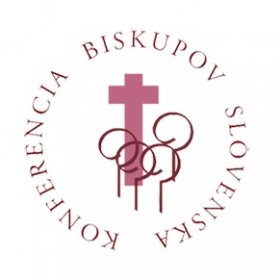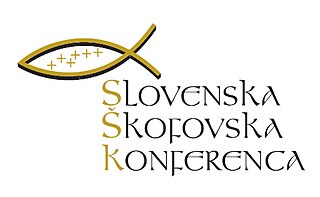
The Catholic Bishops' Conference of the Philippines (CBCP) is the permanent organizational assembly of the Catholic bishops of the Philippines exercising together certain pastoral offices for the Christian faithful of their territory through apostolic plans, programs and projects suited to the circumstances of time and place in accordance with law for the promotion of the greater good offered by the Catholic Church to all people.

The Catholic Church in Tanzania is part of the worldwide Catholic Church, under the spiritual leadership of the Pope in Rome.
Anthony Petro Mayalla was Tanzanian archbishop of the Roman Catholic Archdiocese of Mwanza from his installation on February 28, 1988 until his death in 2009. Mayalla was also the founder of the Saint Augustine University of Tanzania (SAUT) and the Weil Bugando Medical Centre (WBMC).

The Conference of Catholic Bishops of India or CCBI, is the national episcopal conference of the bishops of the Latin Church of the Catholic Church in India, functioning in accordance with canon 447. There are 132 Latin Catholic dioceses in the country, and 190 active and retired bishops are the members of the CCBI. This is the largest bishops' conference in Asia and the fourth largest in the world. The CCBI is a member of the Federation of Asian Bishops' Conferences.
The Portuguese Episcopal Conference is a collective body of the national church and the administration of the Roman Catholic Church in Portugal. The Portuguese Episcopal Conference performs certain pastoral functions designed to deal with the liturgical, disciplinary and other issues specific to the Catholic community in Portugal. The supreme body of the Episcopal Conference is the Portuguese general assembly of bishops and archbishops. Decisions of the Episcopal Conference are approved by the Pope.

The Conference of Bishops of Slovakia (KBS), was established on 23 March 1993, and is composed of the Catholic Bishops Roman Catholic in the Slovak Republic. Slovak Greek Catholic are not members of the episcopal conference, congregating in a parallel Council of Hierarchs instead.

The Romanian Episcopal Conference is the permanent assembly of Catholic bishops in Romania. The bishops' conference has its headquarters in Bucharest, is a member of the Council of European Episcopal Conferences (CCEE) and sends a representative to the Commission of the Bishops' Conferences of the European Community (COMECE).

The Spanish Episcopal Conference is an administrative institution composed of all the bishops of the dioceses of Spain and Andorra, in communion with the Roman Pontiff and under his authority. Its purpose is the joint exercise certain pastoral functions of the episcopate on the faithful of their territory, under common law and statutes, in order to promote the life of the Church, to strengthen its mission of evangelization and respond more effectively to the greater good that the Church should seek to men.

Slovenian Bishops' Conference is the supreme authority of the Roman Catholic Church in Slovenia, which combines all the bishops of Slovenian dioceses and archdioceses: Archdiocese of Ljubljana, Archdiocese of Maribor, Diocese of Koper, Diocese of Novo Mesto, Diocese of Celje, and the Diocese of Murska Sobota. SBC territory coincides with the borders of the Republic of Slovenia.
The International Bishops' Conference of Saints Cyril and Methodius is the Catholic episcopal conference that includes Serbia, Kosovo, Montenegro and North Macedonia together in a cross-border conference.

The Bishops' Conference of Bosnia and Herzegovina is the permanent assembly of Catholic bishops in Bosnia and Herzegovina founded in 1994 by the Holy See.
Conference of Catholic Bishops of the Russian Federation is a collective body of the national church and the administration of the Roman Catholic Church in Russia. Established and approved on March 2, 1999.

The Venezuelan Episcopal Conference (CEV) is a permanent institution. Its stated aim is, according to Second Vatican Council, associated with the Bishops of the Republic to exercise together, as an expression of collegial spirit, certain pastoral functions on the faithful of their territory and to promote according to the rule of law, the greater good which the Catholic Church offers humankind, especially through forms and programs of the apostolate fittingly adapted to the circumstances of time and place.
The Association of Member Episcopal Conferences in Eastern Africa (AMECEA) is the association of episcopal conferences of Eastern Africa and the coordinating body of the Catholic dioceses. The AMECEA was established in 1961, with Cardinal Archbishop of Lusaka Adam Kozlowiecki, SJ, its founding president. It is one of ten members of the Symposium of Episcopal Conferences of Africa and Madagascar (SECAM).
The episcopate of the country is the Bolivian Episcopal Conference. Its highest authority is the plenary assembly of bishops, acting through the Permanent Council of Bishops, which coordinates the activities of Catholic Church and implement the decisions of the Plenary Assembly and the Secretary General who is the organ of information and coordination of activities national character of the CEB. The Episcopal Conference is then composed of 17 committees study of themes and specific issues that concern the catechesis, the liturgy, the Bible, the clergy, consecrated life, the laity, the social ministry, social communication, the 'education, etc.
The Kenya Conference of Catholic Bishops (KCCB) is the assembly of bishops of the Catholic Church in Kenya. Its statutes were approved by the Holy See on December 7, 1976.
The local assembly of bishops is the Episcopal Conference of the Côte d'Ivoire. Founded in 1970, the Episcopal Conference has been officially recognized on February 16, 2007 by the Ivorian state. It includes all the Catholic bishops of the country, ordinary, and auxiliary emeritus. It has its headquarters in Abidjan.
The local assembly of bishops is the Episcopal Conference of Burkina Faso and of Niger. Its purposes are to coordinate and make dynamic pastoral activities of the Catholic Church in the nations of Burkina Faso and Niger for the good of the faithful, and encourage the sharing of resources and people for a common assumption evangelizing mission of the church in the two countries.
The local assembly of bishops is the Episcopal Conference of Malawi, established in 1961. Constituent bodies of the ECM are: the plenary assembly of bishops, the Catholic Secretariat and six committees . The ECM is a member of the Association of Member Episcopal Conferences in Eastern Africa (AMECEA) and Symposium of Episcopal Conferences of Africa and Madagascar (SECAM).

The Institute of Consolata Missionaries, commonly called the Consolata Missionaries is a Catholic clerical religious congregation of Pontifical Right for men. Its members add the nominal I.M.C. after their names to indicate membership in the Institute.









